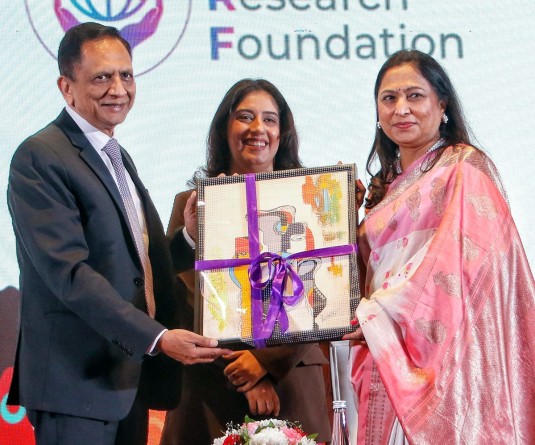
New Delhi, July 18 (IANSlife) All of us function because we have a mind of our own. The way we think, the way we feel and the way we interact with our environment describes and determines our mental health.
We are our mind. Our relationships, our memories, our success, our moments of fun, our view of our work and ourselves, are all a function of positive mental health. Mental health and mental ill health are a continuum, explains Dr Achal Bhagat, Senior Consultant Psychiatrist and Psychotherapist at Apollo Hospitals, Delhi.
"Mental illnesses are common. There are nearly 200 types of mental illnesses. Some of these are common mental disorders, like anxiety, depression, obsessive compulsive disorder and psychosomatic problems (physical symptoms because of psychological reasons). The more severe psychiatric disorders include schizophrenia and bipolar mood disorder. Alcohol and substance abuse are common forms of mental illness. Mental illness is a dysfunction of our mental functions (thinking, feeling, acquiring and making sense of information, problem solving, decision making and judgement).
"This dysfunction is a result of an interaction of biological vulnerability in the form of certain neuro-chemical changes, and risks in the form of psychological and social difficulties that a person may face. In any community, one in four people are likely to experience a mental illness. Any one of us may experience mental ill health," Dr Bhagat told IANSlife.
If you know someone who is living with a mental health problem, here is what she suggests you should not do to add to their problems:
Do not treat them any different to any other person, because they have a mental health problem. People living with mental illnesses and mental health problems are people first.
Do not pity them or think less of them. They are not weak or incapable. They are facing a mental health problem and anyone can face mental health difficulties. It does not make them less of a person.
Do not be impatient. Create time, listen and let them know that you care.
Do not make promises that you cannot keep. Be predictable and consistent in the support that you offer.
Do not be judgemental. We are all judgemental at times and we have opinions. Having opinions about other people and focussing only on some aspects of their personality is disrespectful and comes in the way of someone trusting you. Accept people as they are, without judging them.
Do not be directive. Do not try to determine their solutions, their responses to the difficulties they face. Your solutions may not be relevant to them. What you may find too easy to solve, maybe enormously difficult for them. Your immediate, pat solutions may make them feel that you are trivialising their problems. Gently encourage them to find their own solutions.
Do not be intrusive. Just because they have reached for help from you it does not mean that you need to know all about them. Your need to now is your need to be complete, they may not be comfortable telling you everything about themselves.
Do not get into mental arguments with them, if you disagree with someone, let it be. Sometimes you may be so invested in one way of addressing a problem that each time you meet the person you are helping, you may be already having a mental argument with them. Trying to 'convert' people to your way of thinking is not helpful.
Do not compare their problems with other people's problems. Everyone's distress is individual and it is not less or more.
Do not use platitudes as means of support. Saying things like "Time will heal" and "It is God's will" are ways of stopping a difficult conversation not supporting someone.
Do not stop them expressing themselves, do not question the way they are feeling. Everyone has a right to feel the way they want to.
Do not keep them away from other sources of help. Get information about mental health services and make it available to them.
Do not allow yourself to be overwhelmed. You have to look after yourself too. Being available for someone does not mean that you do not matter.
Do not try to do something to or for people, be with them.






